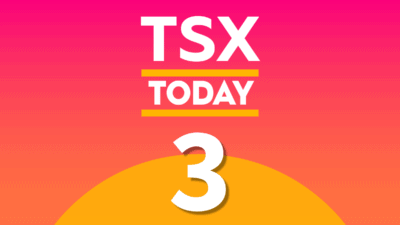Canopy Growth Corp. (TSX:WEED) isn’t the best-run Canadian cannabis producer right now. In fact, its peers, like Aphria Inc. (TSX:APH) and Aurora Cannabis Inc. (TSX:ACB), are running incredibly efficient businesses with long-term plans that sound very promising. It’s clear that both Aphria and Aurora are treating cannabis as a commodity with a focus on initiatives that will drive down the long-term cost per gram of dried marijuana. Canopy, however, is focused on building a brand name for itself with the hopes of capturing the average recreational user that may be heavily influenced by brand names.
Both Aphria and Aurora certainly have the ability to surpass Canopy as Canada’s favourite pot stock, and they’re off to a flying start; however, once legalization comes around, it’s possible that Canopy will become a dominant leader again if cannabis users are really inclined to pay a premium for a brand name product.
Will brand names really make Canopy the world’s top marijuana producer?
Bruce Linton, Canopy’s CEO, believes that brands will be a huge difference in the post-legalization era. Canopy owns some strong brands in the marijuana space, including Tweed, Bedrocan, and Mettrum.
Think about it: on one hand, you have a cheaper, no-name brand of cannabis inside a generic container. On the other hand, you’ve got fancy packaging and a brand name that’s endorsed by celebrity stoners like Snoop Dogg. Would you opt for the cheaper, no-name product, or the fancy Snoop Dogg-endorsed product with fancy packaging?
If you’re a recreational user, then you’re probably going to pay up for the “premium” brand-name product. There are many ways that Canopy can promote its brand name product to entice the average consumer to pay up for it. Sure, a celebrity endorsement may be seen as a cheap move, but let’s face it; this kind of endorsement happens all across all industries, and they’ve worked, regardless of what product was being sold.
Is branding a durable competitive advantage?
Yes, brands matter, no matter what product it is. In the cigarette industry, Marlboro and Camel ads are all over magazines, and it’s clear that the average smoker would opt to pay a premium for a well-known brand.
I believe Canopy has the Marlboro of the cannabis space, and if that’s the case, Canopy will enjoy superior gross margins over the long term.
Could anything get in the way of Canopy’s branding initiatives?
The Ontario government recently announced that the LCBO (Liquor Control Board of Ontario) will be opening up to 150 stores in Ontario by 2020. That means illicit cannabis dispensaries will be shut down and, ultimately, the government-run LCBO will decide what can be sold in its stores and how it can be advertised.
The federal government has made it clear in the past that they’re not fans of celebrity-endorsed cannabis products. If all provinces adopt a business model similar to Ontario’s, then it’s likely that Canopy’s brands will have less of an impact, at least until the government becomes flexible with regards to cannabis sales.
Bruce Linton believes that legalized cannabis sales will start with an LCBO model and will gradually shift to premium stores over time. Such premium stores of the future may include branding all over the place in addition to allowing the sale of edibles and cannabis-based oils, both of which won’t be available in heavily regulated, government-run stores, at least not for now.
Bottom line
Canopy has top-notch brands; however, in the initial stages of legalization, I believe the power of brands will be dampened at government-run stores. So, don’t expect branding to make a significant impact, at least in the near term.
Stay smart. Stay hungry. Stay Foolish.







